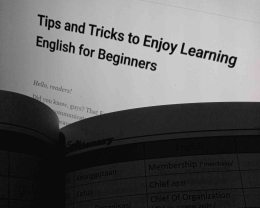Nowadays, everyone must often listen to music, both English music and other foreign languages. bacause by listening to enjoyable music, sometimes it doesn't feel like we have memorized it. so, learning English will be easier when listening to music.
2. Often reading books

3. Watching movies without subtitles

In the current millennial era, young people spend more time watching films. Watching movies is also the most convenient method for someone learning English, because a film in English, without translation, has a positive effect on someone learning to master English. From that film, one can easily learn a conversation that can be directly practiced in everyday life, get a lot of new vocabulary, to training our brains to remember the vocabulary, learn English pronunciation with the conversational intonation from the film, and get many more benefits from watching the film without translation.
4. Listening to podcasts

5. Regularly write in English
Now, this last method is very interesting and very good to practice because, as we have learned from starting grammar and increasing vocabulary, we can apply it by trying to write in English. You can start by writing short stories, diaries, short quotes, or pouring thoughts or feelings into short English stories and poems. Start with something simple and easy, and write down whatever vocabulary you have memorized and know in your notebook.
And there is something more important, namely carrying a small notebook wherever you go, because in this way, you can do it by writing down foreign vocabulary that you just know and then writing it down, and if you forget, you can open the small notebook again without difficulty.











